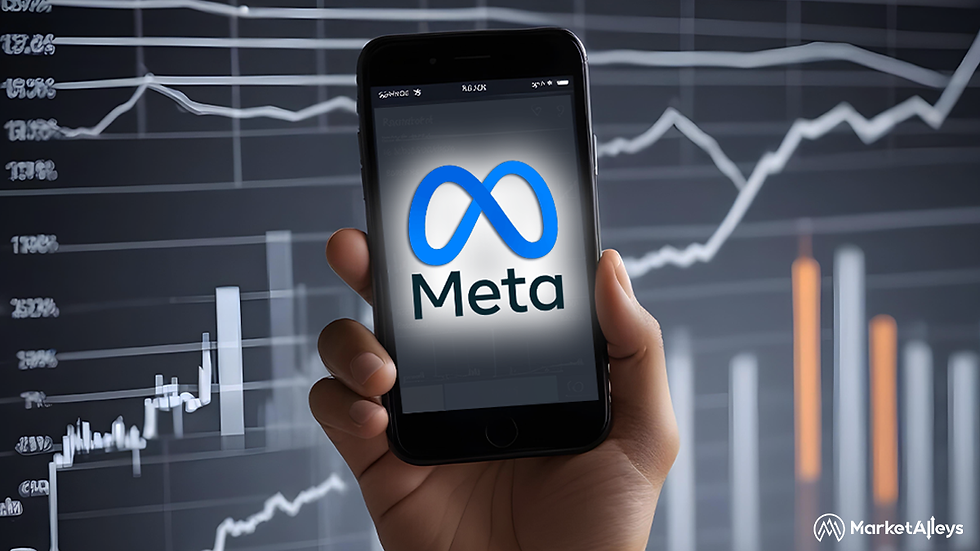Zuckerberg’s Shocking Reveal: Biden-Harris Administration’s Role in Facebook Censorship
- Aug 27, 2024
- 3 min read
In a stunning admission, Meta CEO Mark Zuckerberg has revealed the extent of the Biden-Harris administration's influence on Facebook’s content moderation during the COVID-19 pandemic. This disclosure has sent shockwaves through the tech and political communities, raising significant concerns about the boundaries between government and social media platforms.

Key Takeaways
Zuckerberg's Admission: Meta CEO Mark Zuckerberg revealed that the Biden-Harris administration pressured Facebook to censor content related to COVID-19, which Facebook would not have censored on its own.
Impact on Free Speech: The admission has sparked significant debate about government overreach and the ethical implications of such influence on social media platforms.
Broader Implications: The revelation has reignited discussions about the role of social media companies in moderating content and resisting government pressures in politically charged environments.
Future Considerations: Zuckerberg expressed regret over the past decisions and emphasized Facebook’s commitment to resisting similar pressures in the future.
The Biden-Harris Facebook Censorship Scandal
In a letter addressed to House Judiciary Chairman Jim Jordan, Zuckerberg admitted that senior officials from the Biden-Harris administration repeatedly pressured Facebook to censor content related to COVID-19. This revelation comes as part of an ongoing Congressional investigation into the role of government influence on social media platforms. Zuckerberg’s letter indicates that the platform was urged to suppress information that the administration deemed as misinformation, despite it being content that Facebook would not have otherwise censored.
"I believe the government pressure was wrong, and I regret that we were not more outspoken about it," Zuckerberg wrote. He further acknowledged that Facebook compromised its content standards under pressure, a decision that he now views as a mistake. "With the benefit of hindsight and new information, we wouldn’t make the same choices today," he added.
Fallout from the Biden-Harris Administration’s Influence
Zuckerberg's revelation has sparked a heated debate about the appropriate level of government involvement in content moderation on social media platforms. The admission has also led to questions about the ethical implications of such influence, particularly when it comes to the delicate balance between free speech and the regulation of misinformation.
One of the most significant aspects of Zuckerberg’s letter is his acknowledgment that Facebook should not have demoted the New York Post’s story on Hunter Biden's laptop, a decision made after the FBI warned the platform about a potential Russian disinformation campaign. Zuckerberg conceded that the story, which was initially flagged and demoted by Facebook, was not Russian disinformation, and the platform’s actions were a mistake.
Reactions to Zuckerberg's Admission
The response to Zuckerberg’s letter has been swift and vocal. Tech leaders, politicians, and free speech advocates have weighed in, with many criticizing both the Biden-Harris administration for overstepping its bounds and Facebook for succumbing to the pressure.
Gabor Gurbacs, Director of Digital Asset Strategy at VanEck, took to social media to express his outrage, stating, “Every official who illegally pressured media companies to censor their users should be named, investigated, and tried in court.” Similarly, U.S. Senator Mike Lee lamented the delayed regret, saying, “Who else wishes Mark Zuckerberg’s regret had kicked in before the damage was done — rather than years later?”
Elon Musk, another influential tech leader, responded to the revelation by emphasizing the importance of supporting all viewpoints on social media, within the bounds of the law. He described Zuckerberg’s admission as “a step in the right direction,” but also highlighted the need for more robust resistance to government pressure in the future.
What’s Next for Facebook and Social Media?
Zuckerberg’s letter has not only sparked outrage but has also reignited the debate over the role of social media companies in moderating content, particularly under government influence. This incident raises important questions about the future of digital platforms and the extent to which they can or should resist governmental pressures.
As the Congressional investigation continues, all eyes are on how this revelation will impact future policy-making and the relationship between the government and tech giants like Facebook. Zuckerberg’s commitment to resisting similar pressures in the future may set a new precedent for how social media companies handle content moderation, especially in politically charged environments.
The implications of this Biden-Harris Facebook censorship scandal are far-reaching, potentially influencing not just Facebook’s operations but also how other social media platforms navigate the complex intersection of free speech, misinformation, and government influence.





Comments